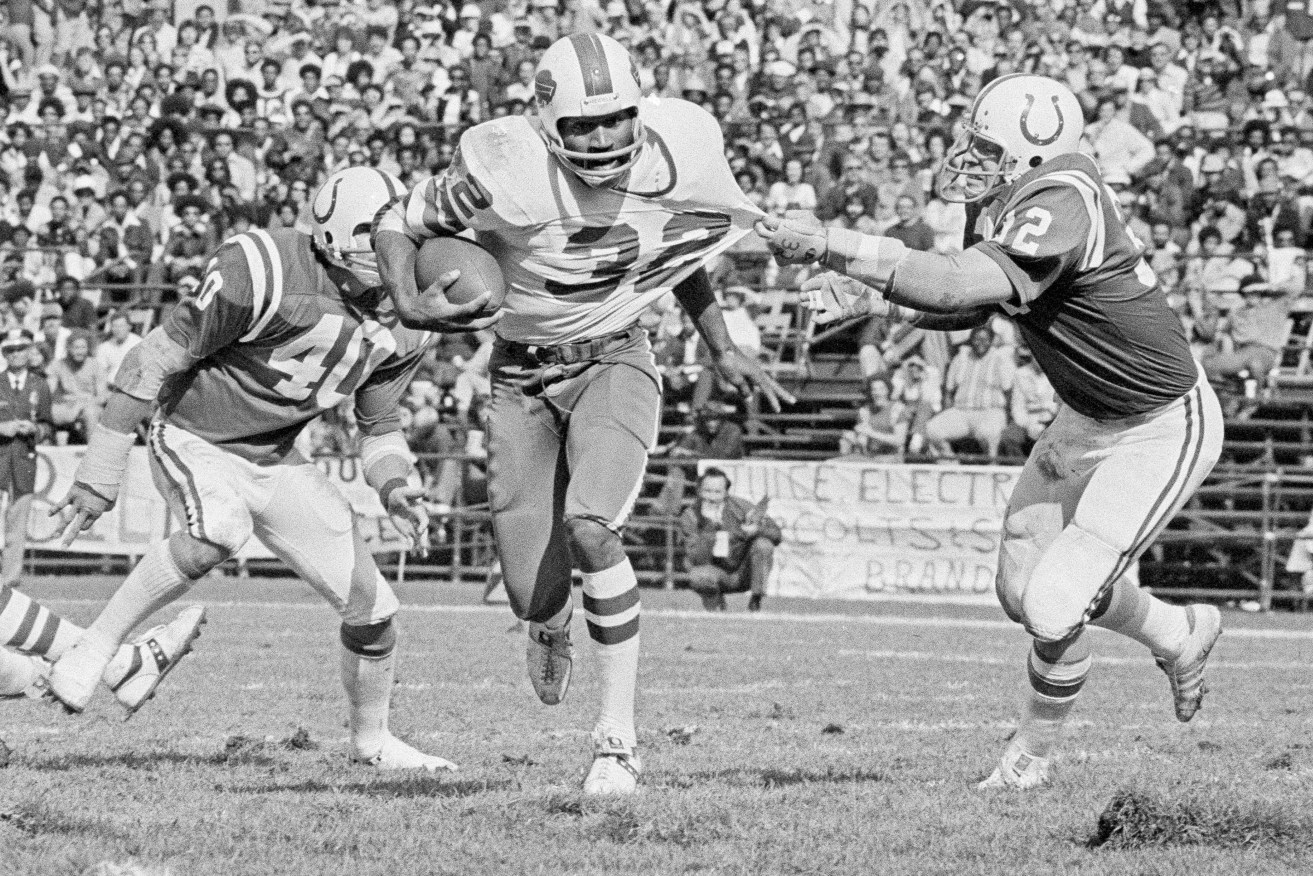A hero, a villain, a racial icon – the twisted legacy of OJ Simpson, dead at 76
The extraordinary episodes after his life as an American Football hero quite overshadowed the career of O.J. Simpson, who has died at the age of 76.

FILE - Buffalo Bulls running back O.J. Simpson (32) has his jersey pulled by Baltimore Colts linebacker Mike Curtis, during the second quarter of an NFL football game in Baltimore, Md., Oct. 12, 1975. Simpson, the decorated football superstar and Hollywood actor who was acquitted of charges he killed his former wife and her friend but later found liable in a separate civil trial, died Wednesday, April 11, 2024, of prostate cancer. He was 76. (AP Photo/File)
On Thursday, the game was left paying muted tributes to the one-time running back superstar who was later acquitted of charges that he killed his former wife and her friend in a trial that mesmerised the public and exposed divisions on race and policing in America.
Simpson’s family announced his death on his official X account, saying he had died of prostate cancer.
His legacy was forever changed by the June 1994 knife slayings of his ex-wife, Nicole Brown Simpson, and her friend Ronald Goldman in Los Angeles, and he was later found liable for the deaths in a separate civil case, serving nine years in prison on unrelated charges.
But his fame, fortune and adulation was forged long before then through his dazzling football talent.
He had seemed to transcend racial barriers as the star Trojans tailback for college football’s powerful University of Southern California in the late 1960s and as a rental-car ad pitchman rushing through airports in the late 1970s.
“I’m not Black, I’m O.J.,” he liked to tell friends.
Simpson played 11 NFL seasons, nine of them with the Buffalo Bills, where he became known as “The Juice” and ran behind an offensive line known as “The Electric Company”.
He won four NFL rushing titles, rushed for 11,236 yards in his career, scored 76 touchdowns and played in five Pro Bowls.
His best season was 1973, when he ran for 2003 yards — the first running back to break the 2000-yard rushing mark.
“O.J. Simpson was the first player to reach a rushing mark many thought could not be attained in a 14-game season when he topped 2000 yards. His on-field contributions will be preserved in the hall’s archives in Canton, Ohio,” said Pro Football Hall of Fame President Jim Porter in a statement.
“The Heisman Trophy Trust mourns the passing of 1968 Heisman Trophy winner OJ Simpson. We extend our sympathy to his family,” was the reaction of the official Heisman Trophy account on X.
“I was part of the history of the game,” Simpson once said. “If I did nothing else in my life, I’d made my mark.”












